Welcome to the mian page of our mining lights, here you can find detailed informations about mining lights provide by green lighting technology which is a leading mining lights manufacturer with modern factory from china , such as what materials used for mining lights making, How to make mining lights, and featues, applications, testing of mining lights etc. Below is a complete guide for mining lights introduction, read more to custom and wholesale mining lights from green lighting technology enjoy good services and competitive price.
What are mining lightsUnderstanding mining lightsSpecifications of mining lightsMaterial used for mining lightsPrice of mining lightsClassifications of mining lightsFeatures of mining lightsApplications of mining lightsTechnology of mining lightsHow to manufacture mining lightsWhere to buy mining lightsHow to test a mining lightHow to choose high quality mining lightsWhat to pay attention to when using mining lightsHow does mining light workHistory of mining lightsFuture of mining lightsFAQS bout mining lights |
|
Mining lights refer to specialized lighting fixtures designed for use in mining environments, particularly in underground mines, tunnels, and confined spaces where illumination is limited. These lights play a crucial role in ensuring the safety and productivity of miners by providing adequate visibility in dark or dimly lit areas. Mining lights are typically engineered to withstand the harsh conditions encountered in mining operations, including dust, moisture, vibrations, and potential exposure to flammable gases. They come in various forms, including handheld, helmet-mounted, and fixed-mount fixtures, each tailored to specific mining applications. These lights often utilize advanced technologies such as LED (Light Emitting Diode) for efficient and long-lasting illumination while meeting safety standards set by regulatory agencies like the Mine Safety and Health Administration (MSHA) or the International Electrotechnical Commission (IEC). Overall, mining lights are essential tools that contribute to the safety, efficiency, and productivity of mining operations worldwide.
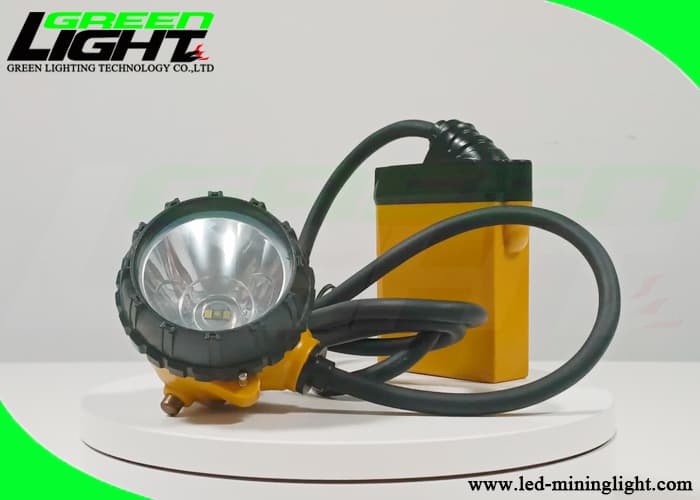
Mining lights are specialized lighting fixtures designed for use in mining operations. These lights provide illumination in underground mines, tunnels, and other confined spaces where visibility is limited. They are essential for ensuring the safety and productivity of miners by illuminating work areas and identifying potential hazards.
Before you play an order for mining lights, you should know more about mining lights, below is one sample table for detailed imforamtions about mining lights specifications.
| Specification | Description |
|---|---|
| Light Source | Type (LED, halogen, incandescent), brightness (lumens) |
| Power Source | Battery type/capacity, rechargeable or disposable |
| Beam Angle | Degree of light spread |
| Enclosure Material | Material used for housing (aluminum, stainless steel, etc.) |
| IP Rating | Ingress Protection rating (e.g., IP67 for dust and water resistance) |
| Mounting Options | Mounting type (helmet-mounted, handheld, fixed mount) |
| Operating Temperature | Temperature range for safe operation |
| Certification | Compliance with safety standards (e.g., MSHA, ATEX) |
| Weight | Weight of the light fixture |
| Dimensions | Size and shape of the light fixture |
| Battery Life | Duration of continuous operation on a full charge |
The materials commonly used for manufacturing mining lights include:
| 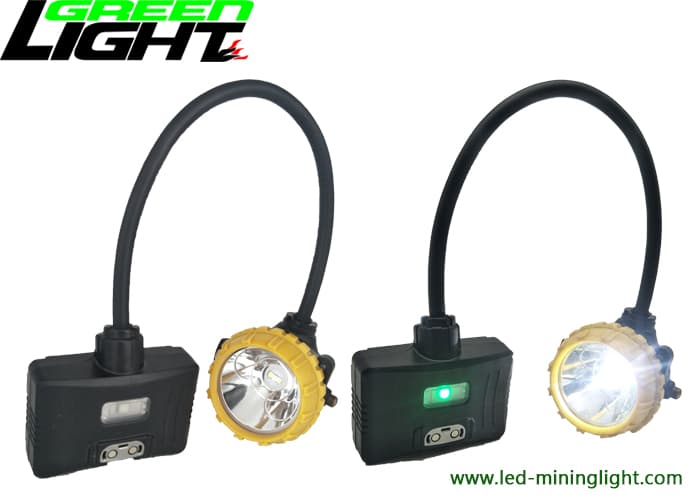 |
Below is a Sample table about the range of mining lights price for your choice, but that we should pay attention to, prices may vary based on factors such as brand reputation, warranty coverage, and additional features like adjustable brightness levels or beam patterns.
| Mining Light Model | Price Range (USD) | Determining Factors |
|---|---|---|
| Model A (Basic) | $50 - $100 | Light source, battery type, IP rating |
| Model B (Intermediate) | $100 - $200 | Additional features (e.g., adjustable beam angle) |
| Model C (Advanced) | $200 - $500 | High-quality materials, extended battery life |
Here is a detailed table outlining the classifications of mining lights, including classification methods and specific names for each category:
| Classification Method | Classification Name | Description |
|---|---|---|
| Design | Portable Mining Lights | Handheld or cap lamps designed for easy carrying by miners as they move around underground. |
| Cap Lamps | Head-mounted lamps worn on miners' helmets or hard hats, providing hands-free illumination. | |
| Fixed Mount Mining Lights | Lights permanently installed in specific locations within the mine for consistent illumination. | |
| Functionality | Explosion-Proof Mining Lights | Lights engineered to operate safely in potentially explosive atmospheres. |
| Wireless Mining Lights | Lights equipped with wireless communication technology for remote monitoring and control. | |
| Emergency Mining Lights | Lights designed for use in emergency situations such as power outages or evacuation procedures. | |
| Brightness | High-Intensity Mining Lights | Lights with high brightness output, providing intense illumination for enhanced visibility. |
| Size/Profile | Low-Profile Mining Lights | Compact lights with a low-profile design suitable for use in tight spaces or areas with limited clearance. |
This table provides a comprehensive overview of the classifications of mining lights, including the method of classification and specific names for each category. It allows miners and mining companies to easily identify and select the appropriate lighting solutions for their specific needs and operational requirements.
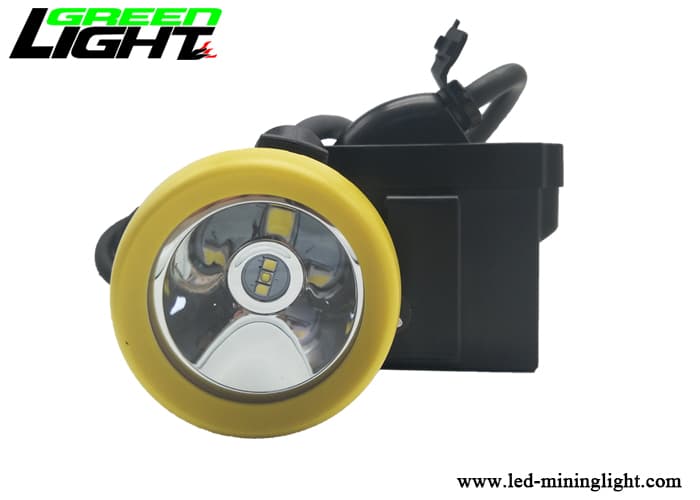
Portable Mining Lights: These lights are designed to be easily carried by miners as they move around underground or in confined spaces. They may include handheld lights or cap lamps worn on helmets or hard hats.
Cap Lamps: Cap lamps are specifically designed to be worn on miners' helmets or hard hats, providing hands-free illumination in underground mines and tunnels.
Fixed Mount Mining Lights: These lights are permanently installed in specific locations within the mine, providing consistent illumination to designated areas. They may be mounted on walls, ceilings, machinery, or other structures.
Explosion-Proof Mining Lights: These lights are engineered to operate safely in potentially explosive atmospheres where flammable gases or dust particles may be present. They are designed with features to prevent sparks and minimize the risk of ignition.
Wireless Mining Lights: These lights utilize wireless communication technology for remote monitoring and control, allowing for increased safety and efficiency in mining operations.
Emergency Mining Lights: These lights are designed for use in emergency situations such as power outages, fires, or evacuation procedures. They may include features such as flashing or strobe modes for signaling purposes.
High-Intensity Mining Lights: These lights are characterized by their high brightness output, providing intense illumination for tasks that require enhanced visibility or for large-scale mining operations.
Low-Profile Mining Lights: These lights are designed with a compact and low-profile form factor, making them suitable for use in tight spaces or areas with limited clearance.
High Brightness: Mining lights feature powerful light sources, such as LEDs, to provide sufficient illumination in dark or dimly lit environments.
Long Battery Life: Many mining lights are equipped with rechargeable batteries that offer extended runtime to ensure continuous operation throughout shifts.
Durability: Mining lights are built to withstand rugged conditions, with rugged housings, impact-resistant lenses, and sealed enclosures to protect against dust, water, and vibrations.
Adjustable Beam Angle: Some mining lights feature adjustable beam angles to allow miners to focus the light as needed for different tasks or environments.
Safety Features: Mining lights often include safety features such as low-battery indicators, overcharge protection, and emergency signaling functions to enhance worker safety.
Mearn more aobut mining lights applications to make shure mining lights you got which in your need.
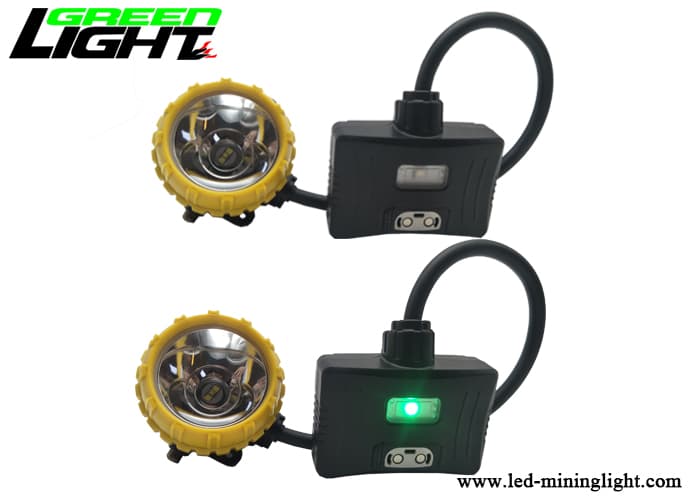 |
|
LED Technology: LED (Light Emitting Diode) technology is commonly used in mining lights due to its high efficiency, long lifespan, and durability. LEDs produce bright, white light while consuming minimal energy.
Battery Technology: Advanced battery technologies, such as lithium-ion and lithium-polymer batteries, are employed in mining lights to provide long-lasting power and fast recharge times.
Wireless Communication: Some mining lights feature wireless communication capabilities, allowing them to be remotely controlled or monitored for improved efficiency and safety.
Safety Standards Compliance: Mining lights are designed and manufactured to meet stringent safety standards, including regulations set by organizations such as MSHA (Mine Safety and Health Administration) and IEC (International Electrotechnical Commission), to ensure safe operation in hazardous environments.
Manufacturing mining lights involves several steps, including:
Design: Engineers design the mining lights, considering factors such as brightness, durability, battery life, and safety features.
Material Selection: High-quality materials like aluminum, stainless steel, and impact-resistant plastics are chosen for durability and reliability in harsh mining environments.
Component Assembly: Components such as LED bulbs, batteries, circuit boards, and housings are assembled according to the design specifications.
Quality Control: Each mining light undergoes rigorous quality control checks to ensure that it meets safety standards and performance requirements.
Testing: The assembled mining lights are tested for brightness, battery life, waterproofing, and durability to ensure they meet the demands of mining environments.
Packaging: Once tested and approved, the mining lights are packaged securely for shipping to distributors or end-users.
Mining lights can be purchased from various sources, including:
Now contact us to play an order for minng lights | 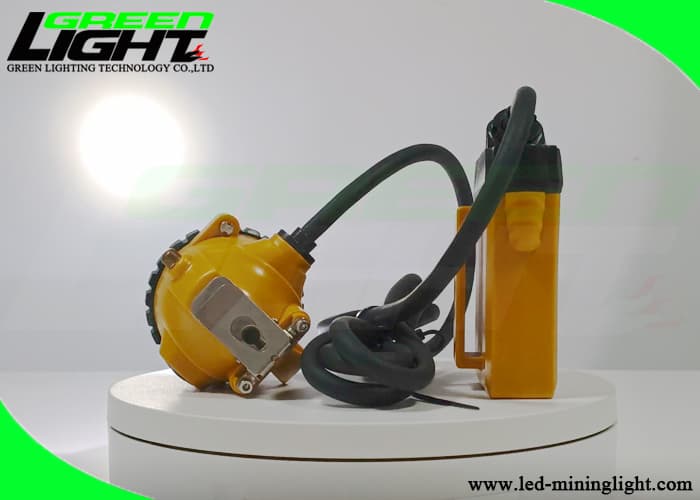 |
To test a mining light:
Brightness: Ensure that the light produces the desired level of brightness for the intended application.
Battery Life: Test the battery life by fully charging the battery and measuring how long the light operates before needing recharging.
Waterproofing: Submerge the light in water or expose it to simulated wet conditions to verify its waterproofing capabilities.
Durability: Drop the light from various heights onto a hard surface to assess its durability and impact resistance.
Functionality: Check all functions of the light, including on/off switches, brightness settings, and any additional features.
Safety: Ensure that the light complies with safety standards and regulations for use in mining environments.
When choosing high-quality mining lights, consider the following factors:
Durability: Look for lights made from rugged materials like aluminum or stainless steel that can withstand the rigors of mining environments.
Brightness: Choose lights with high-powered LEDs or other efficient light sources to ensure adequate illumination.
Battery Life: Opt for lights with long battery life to minimize downtime and maximize productivity.
Safety Features: Ensure that the lights meet safety standards and include features like overcharge protection and waterproofing.
Brand Reputation: Choose lights from reputable brands with a history of providing reliable products and excellent customer service.
Warranty: Check the warranty offered by the manufacturer to ensure protection against defects or malfunctions.
By considering these factors, you can select mining lights that meet your needs for performance, reliability, and safety in mining operations.
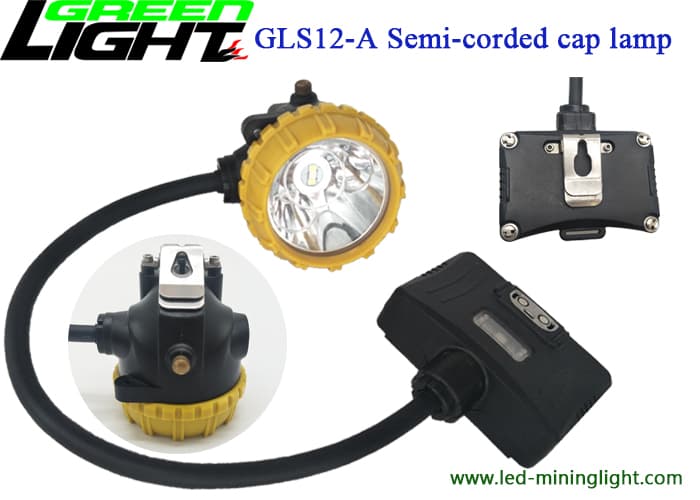
Safety Precautions: Follow all safety guidelines and regulations when using mining lights to prevent accidents and injuries.
Battery Maintenance: Regularly inspect and maintain the batteries of mining lights to ensure optimal performance and longevity.
Waterproofing: Ensure that mining lights are properly sealed and waterproof to prevent damage from moisture and water ingress.
Temperature Ratings: Pay attention to temperature ratings to ensure that the mining lights can withstand the operating conditions in the mining environment.
Beam Angle: Adjust the beam angle of the light to suit the specific task or environment, optimizing visibility and reducing glare.
Proper Storage: Store mining lights in a cool, dry place when not in use to prevent damage and extend their lifespan.
Mining lights typically work by converting electrical energy into light through the use of light-emitting diodes (LEDs), incandescent bulbs, or other light sources. The electrical energy is provided by batteries or an external power source, which powers the light source to produce illumination. In battery-powered mining lights, the batteries are charged either externally or through built-in charging mechanisms. The light is emitted through a lens or reflector system, which directs the light beam to provide visibility in dark or dimly lit mining environments.
Below is a picture to overview the important parts of a mining light, these parts make mining light work well.
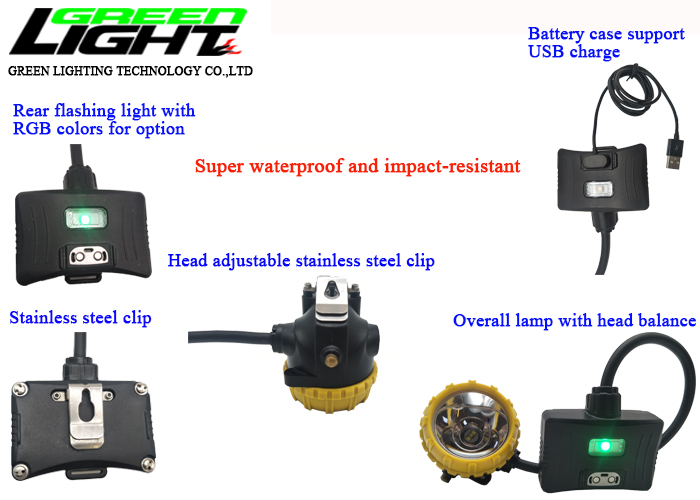
The history of mining lights dates back to the early days of mining, where miners relied on candles, oil lamps, and later, carbide lamps for illumination underground. The invention of the safety lamp by Sir Humphry Davy in 1815 revolutionized mining lighting by reducing the risk of explosions caused by flammable gases. Throughout the 20th century, advancements in technology led to the development of electric mining lights powered by batteries or external power sources. The introduction of light-emitting diodes (LEDs) in the late 20th century further improved the efficiency, brightness, and longevity of mining lights, making them essential tools for modern mining operations.
The future of mining lights is likely to be driven by advancements in LED technology, battery technology, and wireless communication. LED mining lights will continue to become more energy-efficient, compact, and durable, offering longer battery life and brighter illumination. Battery technology will evolve to provide faster charging times, higher energy density, and improved safety features. Wireless communication capabilities will enable remote monitoring and control of mining lights, enhancing safety and efficiency in mining operations. Additionally, developments in materials science may lead to the introduction of new lightweight and durable materials for mining light construction, further improving performance and reliability in harsh mining environments.
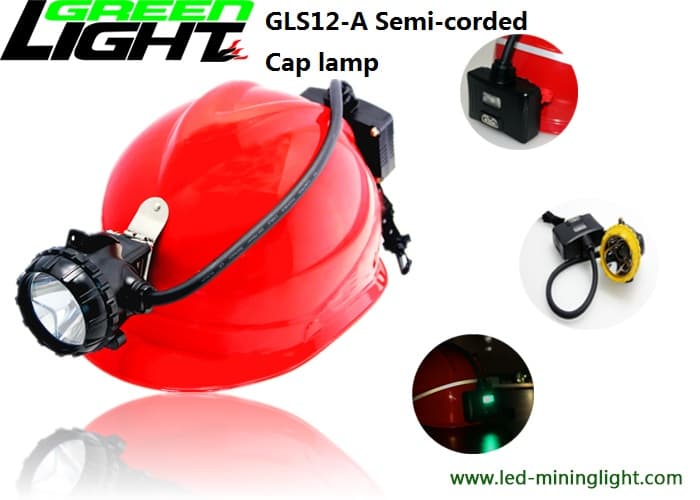
What are mining lights?
What types of mining lights are available?
How do mining lights work?
What factors should be considered when choosing mining lights?
Are mining lights waterproof?
What is the lifespan of mining lights?
Are mining lights safe to use in hazardous environments?
How can I maintain mining lights?
What are the advantages of LED mining lights over traditional lighting?
Can mining lights be used for other purposes besides mining?
How should I test a mining light for performance and safety?
What should I do if my mining light malfunctions?
Are there specific regulations regarding the use of mining lights?
Can mining lights be customized or modified for specific needs?
Do mining lights come with warranties?
Are there different brightness settings available on mining lights?
Can mining lights be recharged?
How can I determine the appropriate beam angle for my mining light?
What should I look for in terms of battery life when choosing a mining light?
Where can I find more information about specific mining lights or brands?